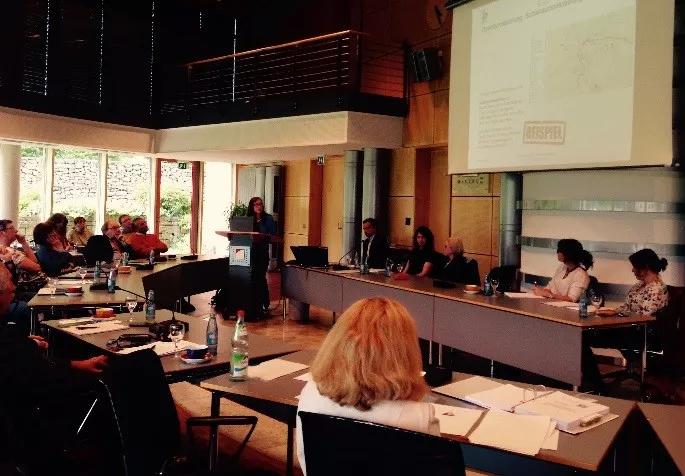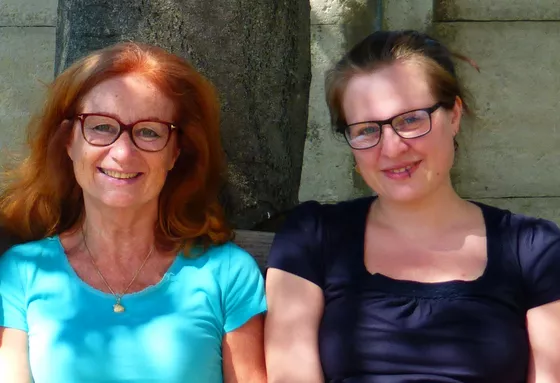Decentralisation in Middle Franconia
Funding: District of Middle Franconia
Research Institution: Technical University of Munich | Sociology of Diversity
Project Management:
Sociology of Diversity Chair
Prof. Dr. Elisabeth Wacker
Uptown München-Campus D
Georg-Brauchle-Ring 60/62
80992 München
Tel.: +49 (89) 289 - 24460
Fax: +49 (89) 289 - 24463
E-Mail: elisabeth.wacker(at)tum.de
Duration: 2015-2018
Final Report: 2018
Project Collaborators: Yvonne Wechuli, M.A.; Anke Petters
Project Background: The Middle Franconia district, as a regional welfare institution, is responsible for the steering of the integration assistance according to the SGB IX [German Code of Social Law no. IX). In the context of a new political orientation in the design and funding of benefits for persons with disabilities, the development of decentralised services represents a crucial target for the district. Against this background, a task force commissioned by the district, involving both representatives from the district as well as from non-statutory and public welfare, devised a conceptual framework entitled “Decentralisation of Services for Persons with Disabilities in the Middle Franconia District”.
The professional principles underpinning the conceptual framework are person-centred participation planning, the establishment, fostering and maintenance of social relations as well as a social space orientation. Based on these principles, the task force made implementation recommendations for various areas of life (housing, mobility, school/education/lifelong learning, health, work/occupation/daily structure and leisure/culture).
In June 2015, pilot projects were launched in four model regions in order to implement this framework programme in four different areas of life (e.g. housing, mobility, health and leisure/culture).
Aims: The model project is academically supervised and assesses the implementation of the “Decentralisation of Services” framework by the four funding institutions (the Lebenshilfe Nürnberg, the Diakonie Neuendettelsau, the Lebenshilfe Erlangen Höchstadt and the Caritasverband im Landkreis Nürnberger Land e.V.) in the model regions. The academic supervision provides support in terms of comparability, target achievement, transferability to other regions as well as future perspectives. Together, the stakeholders identify obstructive and beneficial factors for the transferability of the concept to other regions of Middle Franconia.
The focus of the accompanying formative evaluation is on the three above-mentioned professional principles as well as on the determination and testing of the criteria and indicators conducive to successful decentralisation of services for persons with disabilities. In the course of the initial phase, the stakeholders will be determining the appropriate methods and processes for data collection and, on this basis, subprojects in the respective model regions will be systematically generating data (such as knowledge about structural, process and outcome quality as well as the effects of interventions).
In order to collect data according to the professional principles guiding the decentralisation of services, qualified individuals from the model regions (e.g. employees of the funding institutions) will be trained as co-researchers – whenever possible. This strategy should enable the researchers to exploit the local expertise of the co-researchers as well as foster the establishment of local competence in the model regions in order to ensure the sustainability of these analyses.
Based on the data and experience garnered as well as the scientific evaluation of the various sites, an index for the decentralisation of services will be developed to assist the further decentralisation of services in the Middle Franconia District.
Final conference: “What possibilities are there to improve people with disabilities’ participation in public life” was the topic for the symposium Participation in Social Space on Wednesday Oct. 24th at the district town hall in Ansbach. Among others, new insights from a three year model project in Ansbach, Nürnberg, Lauf and Herzogenaurach were discussed, which was also scientifically supported by the Technical University of Munich. The horizons for the needs of people with disabilities was widened there. In practice, the involved cities established for instance internet portals that were inclusive or considered wheelchair-accessible lowered pavements. The symposium also dealt with inclusive offers for residential models, which were examined.
Besides the administration employees of the district Middle Franconia and political mandate holders, representatives of other Bavarian districts, state ministries, the government of Middle Franconia, the communal administration, the disabled persons’ advisory council, institutions of social and public welfare were present for the symposium.


